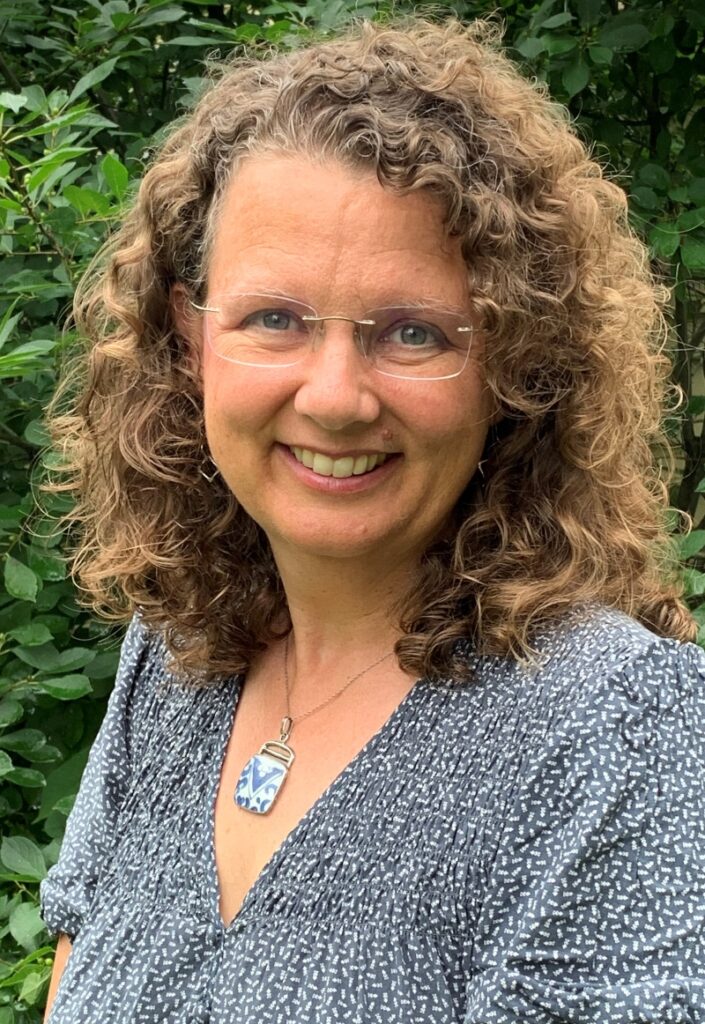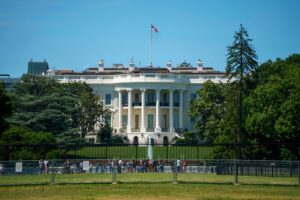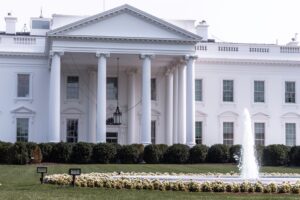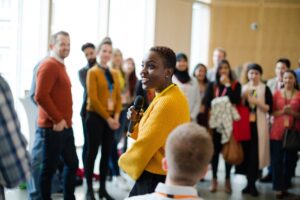“How alike am I to you.”
That’s a line in the song sung by all participants in Children’s International Summer Village (CISV), an organization set up in the UK soon after World War 2 to promote friendships among kids from around the world.
The line has particular resonance for Braver Angel Jennifer Hall-Witt, a Blue who grew up in a largely Red family. Her own kids have participated in the program and she became an active volunteer, observing how CISV helps young ones from different cultures bridge their differences, develop friendships, and learn from each other. And today, her CISV experiences inform her involvement with Braver Angels.
This month, Jennifer starts work as the Co-Director of Volunteer Engagement for the Office of Field Operations (OFO), the group set up to spur the growth and impact of alliances and groups nationwide. Her primary role is to be the driver for developing trainings for alliance co-chairs and helping set up processes so volunteers can easily find help when they need it. “I’ll be running the trainings every second Monday. I want to be listening to the alliances as much as possible – drawing on their incredible wisdom,” she says.
“I’ve learned to listen for the values underneath people’s political positions. When I do that, I often discover how similar our
values are.”
Jennifer’s involvement with the organization goes back to 2017. Like so many members, she’d been upset by the polarization that marked the 2016 presidential election; she felt then that there must be ways to get conservatives and liberals to at least hear each other. During 2018, she joined her local alliance in Massachusetts’ Pioneer Valley, attended the first annual Braver Angels convention in Harrisonburg, Virginia, and co-organized a daylong Red-Blue workshop on her home turf.
But her biggest contribution to date has been to lead a research project exploring the form and function of Braver Angels alliances. An academic herself – she’d taught history at nearby Smith College – Jennifer had enrolled in a master’s program at the School for International Training in Peace and Justice Leadership to see what the field of conflict resolution and peacebuilding could teach about bridging divides in the U.S.
Last year, a project in her Leadership and Change class presented an opportunity to partner with a group such as Braver Angels. Reaching out to New England regional coordinator Doug Teschner, Jennifer learned that the organization’s leaders didn’t have enough intel on what was happening on the ground. Working closely with the OFO’s Steve Saltwick and Lynn Heady and some of the regional leaders, she ended up heading a study to find out.
She assembled a team of Braver Angels members who, for several months from late Spring 2021, began interviewing the current and past co-chairs of 23 alliances across the country. The resulting report revealed that the life cycles of alliances varied significantly. She and her team found there are two types: workshop-oriented; and small-group discussion alliances.
The former are outward-facing, toward Braver Angels membership and the broader public in a region; they design their own events and tend to develop big membership lists over time. In general, they lean Blue and are more urban or urban/regional. Their life cycle is more like that of a start-up business, where it’s necessary to build up a sufficiently large core team before things take off.
The latter are more inwardly focused, typically drawing less than 20 regulars to discuss political topics. They work hard to achieve and maintain a Red-Blue balance and they center around conversations about political issues among the participants in order to build understanding and find common ground.
Each type of alliance has its merits and its drawbacks and therefore each needs to be recognized for which type it is – or wants to be – and led and managed accordingly. Jennifer offers one example: a small-group discussion alliance that wants to start pursuing policy activism may need a different organizational structure with different roles and responsibilities for members than is typical of such alliances.
The research study’s results were circulated late last year. Since then, Jennifer has presented them formally to the OFO and other Braver Angels leadership groups. Her work – and that of her research colleagues – is already helping to shape processes that will improve the effectiveness of alliances everywhere and thus strengthen Braver Angels’ ability to combat polarization across the country.
Meanwhile, Jennifer has re-engaged with her local alliance: Braver Angels Pioneer Valley. “Now that that alliance is being revived, I find myself reflecting on what Braver Angels has taught me about listening,” she says. “I’ve learned to listen for the values underneath people’s political positions. When I do that, I often discover how similar our values are.”
She cites a recent conversation with a local Republican official about what respect meant to each of them. Jennifer says the words the other person used were nearly identical to the words she would use. “Through listening to each other’s views on topics like welfare policy and abortion, it became clear that we both care deeply for others and we value freedom, autonomy, justice, and community, even if we express those values in different ways and support different policies,” she says.
There speaks the voice of a true Braver Angel.




